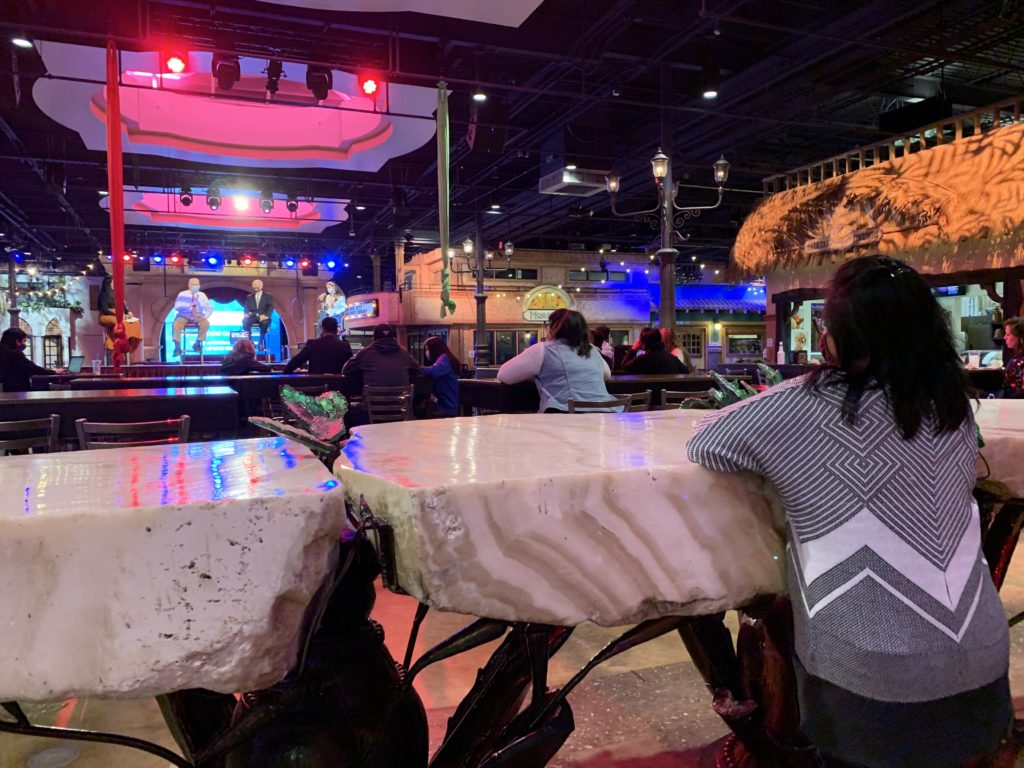
Some COVID-19 vaccines are already in use, but the clinical trials roll on. In fact, they’re still recruiting participants, and they’re particularly focused on signing up people of color.
At first, speed was the top priority. Now diversity is, says Dr. Stephan Sharp, who leads a vaccine trial site at Clinical Research Associates in Nashville. He recently held a Facebook event with Kurdish young professionals.
“We want folks from all different ethnic backgrounds. because it’s possible that the vaccine works better in one group or lesser in another group, and the only way to find out is to test it,” he said.
Sharp will be recruiting new patients for at least the next few months. The trials will continue for years to see how long the vaccines are effective.
He also hosted an informational presentation at Plaza Mariachi, an international mall on the Southeast side of Nashville, which would be seen as an unusual spot for recruiting clinical trial participants — at least before COVID-19. Now this mall — with its arcade, food court and souvenir shops — is fertile ground.
Most people are watching the pitch, translated into Spanish, through Facebook Live. But Rolando Figueroa heard an ad for the event on Spanish-language radio. So the 36-year-old plumber came to see in person.
He says his family has so far been spared by COVID-19, but he’d like to get the vaccine sooner rather than later.
“If one of my family members get sick, I want to see if we can figure out how to get the vaccine,” he says.
Figueroa, who is originally from Mexico, falls into a demographic that pharmaceutical companies are looking for. Latinx patients are underrepresented in typical clinical trials, as are African-Americans. But they’re disproportionately affected by this pandemic, with higher rates of infection and mortality compared to other Americans.
More: COVID Vaccine Trials Are Moving Quickly, But Meharry Is Taking Time To Recruit Black Volunteers
While Figueroa doesn’t need much convincing, Susana Vasquez — who is also listening — says recruiters have many doubts to overcome. Her family is also originally from Mexico, and she says people in her community were skeptical of even getting tested for COVID-19.
“They thought they would have to give their information, immigration status, or whatever,” she says. “So I think that would also play a role in being part of the clinical study.”
For a while, COVID patient data was shared with police in Nashville, which likely damaged trust with immigrant communities. It’s an even bigger leap, Vasquez says, to agree to be followed in a clinical trial for years, even if it’s not directly by the government.
Institutions that already had deep connections with underrepresented communities, like historically Black medical schools, have been a step ahead in recruiting more people of color as trial participants.
“You can’t just like show up and expect people to kind of get on board,” says professor Rachel Hardeman, who researches health equity at the University of Minnesota. “It does take very intentional effort and time to engage people in a way that feels good and feels trustworthy.”
Even for those who don’t participate in a clinical trial, public health advocates hope the outreach will improve trust in the vaccine itself, so that more people take it when it becomes available to them.

